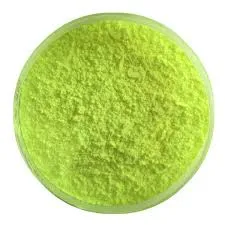The Growing Interest in β-Nicotinamide Mononucleotide Implications for Health and Longevity
In recent years, the scientific community has shown increased interest in β-nicotinamide mononucleotide (NMN), a promising compound in the field of health and longevity. NMN is a nucleotide derived from ribose, nicotinamide, and phosphate. It plays a crucial role in the synthesis of nicotinamide adenine dinucleotide (NAD+), a coenzyme essential for various biological processes. As we age, our levels of NAD+ tend to decline, leading researchers to explore the potential benefits of NMN supplementation as a means to counteract the effects of aging.
The Role of NAD+ in the Body
To understand NMN's importance, it is essential to appreciate the role of NAD+ in the body. NAD+ is involved in numerous metabolic reactions, including energy production within the mitochondria, DNA repair, and cell signaling. It acts as a crucial cofactor for enzymes known as sirtuins, which have been linked to longevity and stress resistance. Furthermore, NAD+ is vital for maintaining cellular health, and its decline has been associated with age-related conditions such as metabolic disorders, neurodegenerative diseases, and impaired cellular function.
How NMN Works
When ingested, NMN is converted into NAD+ through a series of enzymatic reactions. This conversion helps replenish the reduced levels of NAD+ in various tissues, particularly in muscle, brain, and liver cells. By boosting NAD+ levels, NMN aims to enhance mitochondrial function, improve energy metabolism, and possibly slow down the aging process. Several studies have demonstrated that NMN supplementation can improve physical performance, enhance cognitive function, and promote overall health in animal models, prompting researchers to investigate its effects in humans.
Promising Research Findings
β-nicotinamide mononucleotide

Animal studies have shown that NMN supplementation results in significant health benefits. For instance, studies conducted on mice have indicated that NMN can improve insulin sensitivity, enhance endurance capacity, and mitigate age-related weight gain. Additionally, NMN has been found to protect against neurodegeneration and promote vascular health by improving blood flow and reducing arterial stiffness.
While human studies are still in their infancy, preliminary results are encouraging. A study published in 2020 explored the safety and efficacy of NMN in healthy older adults, revealing that NMN supplementation was well-tolerated and resulted in increased NAD+ levels in the bloodstream. Such findings offer hope that NMN may one day become a vital tool in the fight against age-related decline in humans.
The Future of NMN in Health and Wellness
Despite the promising data, it is essential to approach NMN supplementation with caution. Although NMN appears to have beneficial effects, further research is needed to fully understand its long-term impact on human health. Additionally, the appropriate dosage, timing, and potential interactions with other medications remain areas of active investigation.
As the interest in NMN continues to grow, it is becoming increasingly available in the market as a dietary supplement. However, consumers should seek to obtain NMN from reputable sources and consult with healthcare professionals before beginning any new supplementation regimen.
Conclusion
In summary, β-nicotinamide mononucleotide is emerging as a compelling player in the realm of health and longevity. With its critical role in NAD+ synthesis and promising research findings, NMN may hold the key to combating age-related decline and improving overall vitality. As scientists delve deeper into understanding its mechanisms and effects, NMN could become a pivotal component in achieving longer, healthier lives. The potential benefits of NMN represent a fascinating frontier in biomedical research that continues to capture the interest of scientists and health enthusiasts alike.

